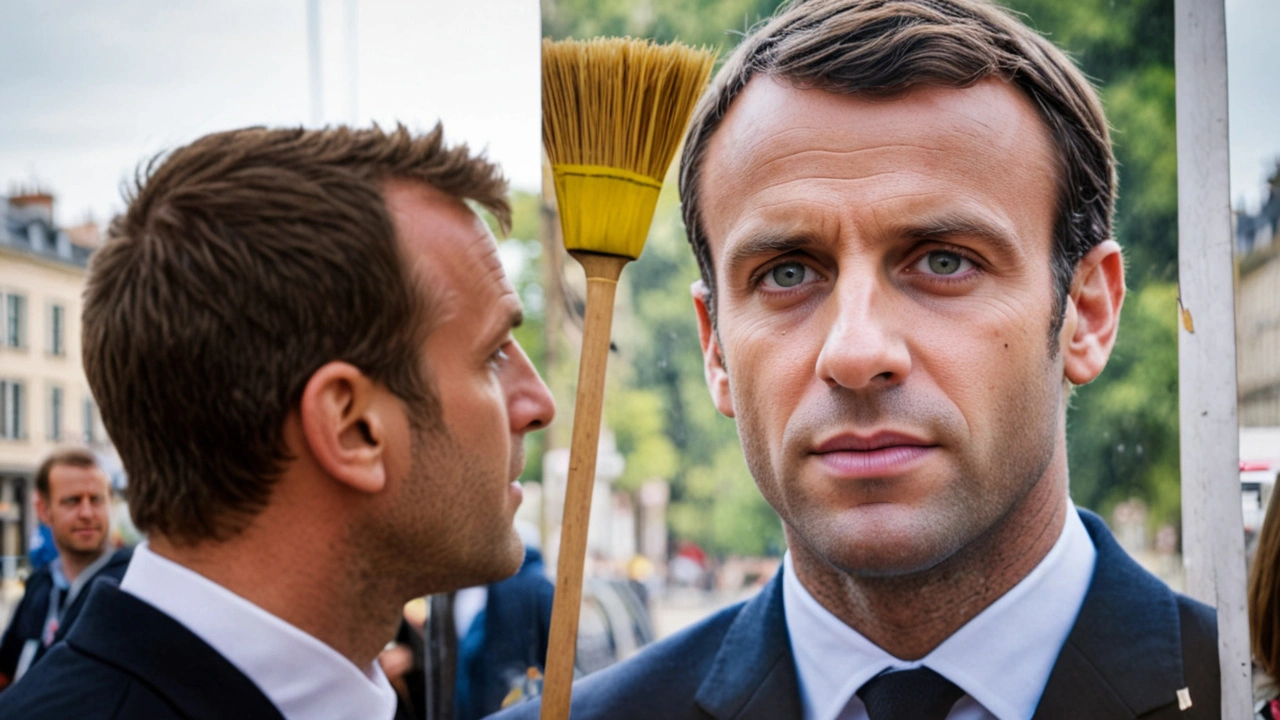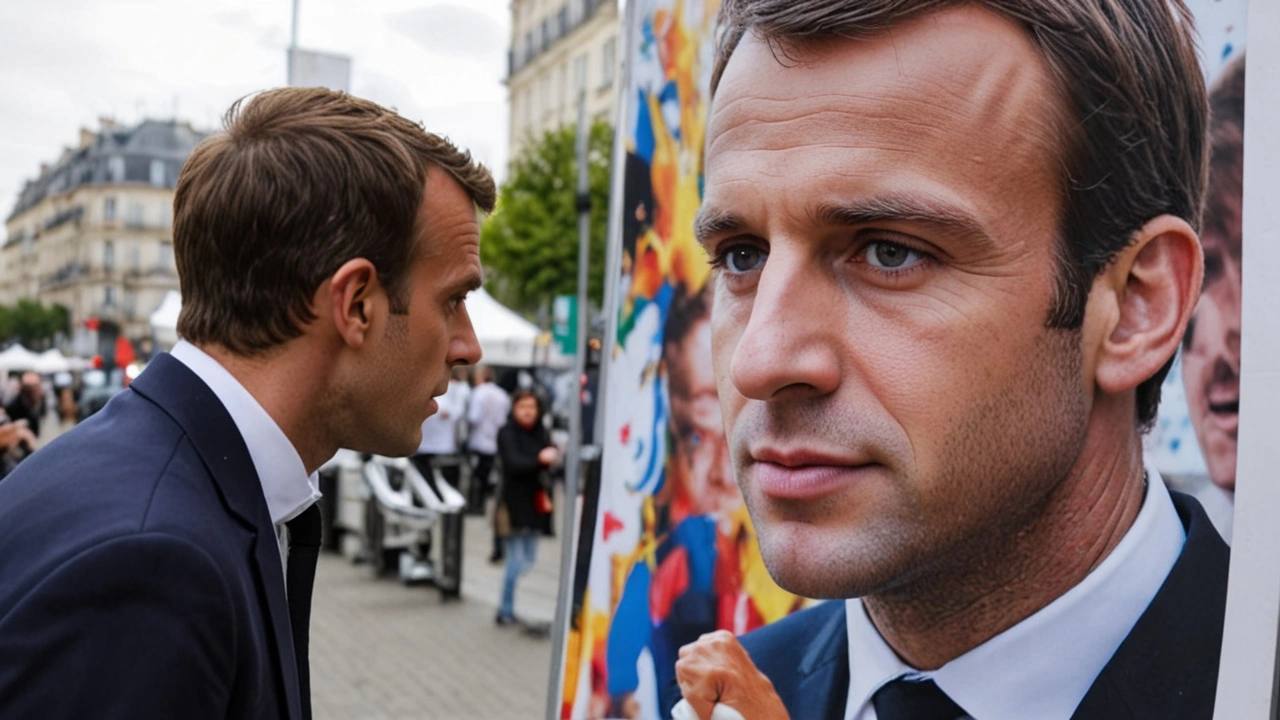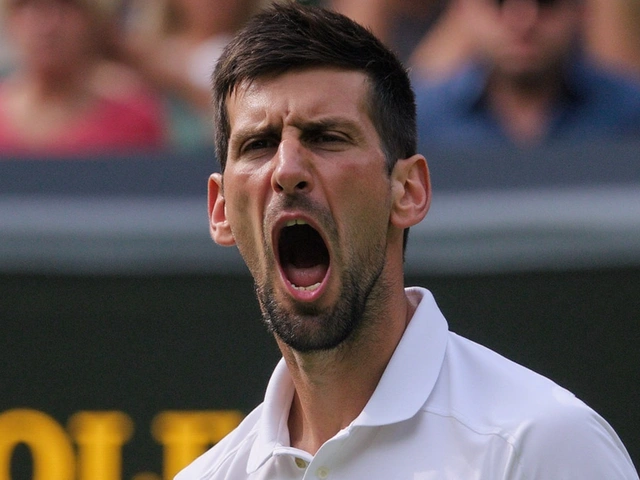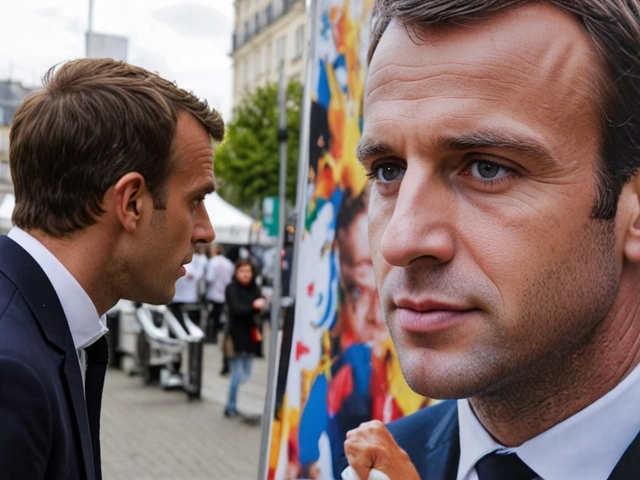The High-Stakes Gamble
What seemed like a visionary strategy for President Emmanuel Macron has turned into a significant stumble that threatens to undermine his political future. When Macron dissolved the French parliament and called for a snap election, his objective was to strengthen his standing both within France and across Europe. However, the outcome was a stark deviation from his expectations. Instead of consolidating power, Macron now faces significant challenges in governing and maintaining his political influence.
A Surprise Outcome
The unexpected victory of the left-leaning New Popular Front alliance in the final round of the parliamentary election threw a wrench into Macron's plans. The victory was not merely a setback; it represented a seismic shift in the French political landscape. The National Rally, a far-right party which many anticipated would perform well, was defeated. Now, Macron must navigate a political environment where cooperation with a coalition or technocratic administration is imperative. This new reality complicates the governance process in a country known for its political volatility.
Implications for Governance
Governance under this new structure will undoubtedly be complex. The composition of the new parliament suggests that legislation will be challenging to pass without significant negotiation and compromise. Macron, known for his pro-business and pro-European stance, will now have to tread carefully and make concessions to a coalition with different ideological leanings. This requirement for consensus politics is likely to slow down the legislative process and complicate the implementation of reforms.

A Dent in European Ambitions
Macron's setback extends beyond French borders. His aspirations for a leadership role in Europe are now under scrutiny. A weakened domestic position undermines his ability to influence European politics effectively. Macron had positioned himself as a key figure in the European Union, advocating for closer integration and robust economic policies. However, the failure of the snap election gambit calls into question his capacity to lead and inspire confidence among European leaders.
The People's Voice
The discontent among the French populace is another critical factor. Movements such as the 'Yellow Vests,' which arose from frustrations over economic inequality and a perceived disengagement by the political elite, underscore the disconnect between Macron's administration and various segments of society. This dissatisfaction played a significant role in the election outcome, reflecting broader concerns that cannot be ignored. The mixed reactions to Macron's policies highlight a divided nation grappling with economic and social disparities.
Economic Disparities and Social Unrest
The economic policies that Macron has championed were designed to boost economic growth and reduce unemployment. However, these measures have also led to accusations of favoring the wealthy and failing to address the needs of the working class and marginalized communities. The Yellow Vest movement, which brought thousands into the streets in protest, epitomizes the unrest and frustration felt by many. The failure to adequately address these grievances has undoubtedly influenced the recent election outcomes.

Macron's Legacy Under Scrutiny
What was once seen as a promising legacy marked by progress and modernization is now overshadowed by the strategic missteps of recent months. Macron's decision to call for a snap election was a bold move, but its failure has led to increased scrutiny of his leadership. His ability to navigate this challenging period will be crucial in determining whether he can salvage his political legacy or if it will be permanently tarnished by this miscalculation.
The Road Ahead
The path forward for Macron is fraught with challenges. He must find ways to work effectively with a coalition that may not share his vision for France and Europe. Building bridges and fostering collaboration will be critical to ensuring that governance can proceed smoothly. Additionally, addressing the economic and social concerns that have led to widespread discontent will be essential in rebuilding trust and confidence among the French people.
Conclusion
In summary, Emmanuel Macron's presidency faces a critical juncture. The failed snap election has cast a long shadow over his political ambitions and legacy. His ability to navigate this tumultuous period will determine whether he can reclaim his position as a leader both domestically and on the European stage. The coming months will be crucial in shaping the future of Macron’s presidency and his place in French and European history.








Sara Khan M
July 10, 2024 AT 06:04Macron’s gamble backfired hard 😒
shubham ingale
July 12, 2024 AT 13:37Wow what a twist 🙌
Ajay Ram
July 14, 2024 AT 21:10The snap election was intended as a decisive demonstration of authority, yet it unfolded as a complex tableau of political realignment.
Voters, weary of centrist technocracy, gravitated toward the New Popular Front, interpreting it as a vehicle for genuine renewal.
This shift signals not merely a temporary backlash but a structural reconfiguration of the French legislative arena.
Macron’s traditional allies found themselves sidelined, compelled to renegotiate policy priorities amidst a fragmented parliament.
The necessity for coalition building introduces a new calculus where compromise supersedes unilateral agenda setting.
In the European context, the French capital’s diminished leverage may embolden alternative power centers within the Union.
The delayed EU fiscal integration plan now faces additional scrutiny, as member states recalibrate their expectations of French leadership.
Moreover, the domestic unrest echoed by the Yellow Vest movement adds a socio‑economic dimension that cannot be ignored.
Economic reforms that previously relied on top‑down implementation now demand grassroots consensus.
This reality forces a re‑evaluation of the neoliberal paradigm that underpinned many of Macron’s initiatives.
Simultaneously, the far‑right National Rally’s underperformance reshapes the narrative around populist momentum in Western Europe.
Political scientists are already revisiting models of voter behavior in response to perceived elite disconnect.
The long‑term implications may include a more pluralistic parliamentary culture, albeit at the cost of legislative speed.
Ultimately, the outcome serves as a cautionary tale about the perils of political overreach in a mature democracy.
Observers worldwide will watch closely as France navigates this intricate transition, testing the resilience of its institutions and the adaptability of its leaders.
Dr Nimit Shah
July 17, 2024 AT 04:44It’s disappointing to see France drift away from the strong, unified vision that should guide a nation of our stature; the recent election results feel like a setback for anyone who values a robust, forward‑looking Europe.
Ketan Shah
July 19, 2024 AT 12:17The parliamentary composition now reflects a broader spectrum of political ideologies, which will likely necessitate more intricate negotiation processes for any legislative agenda to pass.
Aryan Pawar
July 21, 2024 AT 19:50It’s tough seeing the shift but we’ll see how they manage to work together hopefully it ends up better for everyone
Shritam Mohanty
July 24, 2024 AT 03:24Behind the scenes there are whispers that the whole snap election was orchestrated by hidden financial interests wanting to destabilize the EU from within.
Anuj Panchal
July 26, 2024 AT 10:57From a systemic‑risk perspective, the alleged manipulation aligns with a classic case of regulatory capture where oligarchic capital exerts pressure on democratic mechanisms to inject volatility into sovereign policy frameworks.
Prakashchander Bhatt
July 28, 2024 AT 18:30Let’s stay hopeful-politics is cyclical and today’s setbacks can become tomorrow’s breakthroughs if we keep the dialogue open.
Mala Strahle
July 31, 2024 AT 02:04The recent parliamentary shift compels a reconsideration of the foundational premises upon which contemporary French governance was erected, urging both policymakers and citizens alike to engage in a deeper, more contemplative discourse about the nation’s trajectory; it is within this reflective space that genuine transformation may germinate, unshackled from the constraints of short‑term partisan calculus; moreover, the ripple effects across the European Union cannot be understated, as the balance of power subtly reorients itself in response to France’s internal reconfiguration; this period, thus, presents an unparalleled opportunity for collective introspection, where the synthesis of diverse ideological strands could foster a more resilient and inclusive political architecture.
shubham garg
August 2, 2024 AT 09:37Go Macron!
LEO MOTTA ESCRITOR
August 4, 2024 AT 17:10yeah, good vibes for him
Sonia Singh
August 7, 2024 AT 00:44Sending positive thoughts to everyone navigating this tough political climate.
Ashutosh Bilange
August 9, 2024 AT 08:17OMG this is like the most dramaddic thing ever!! Can’t even... 😱